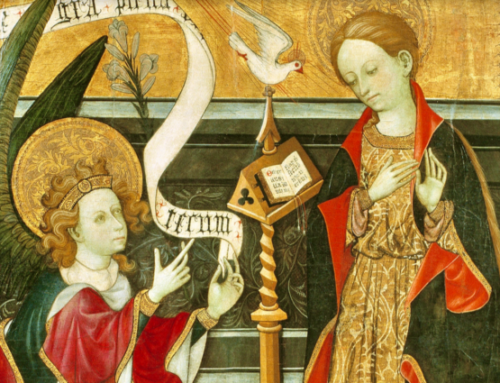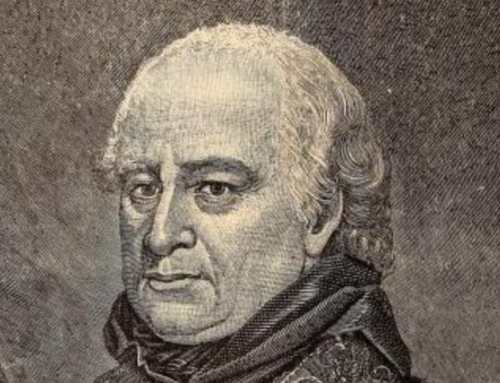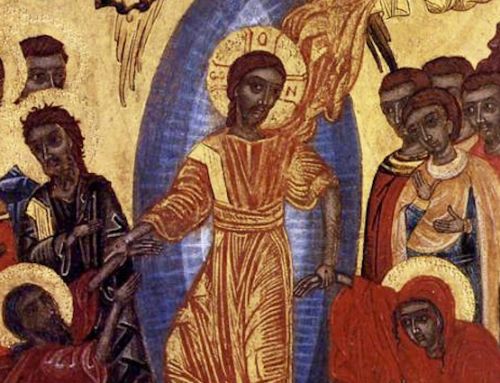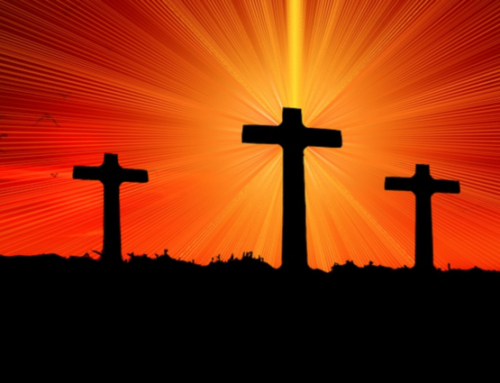The old men who narrate the songs of Bruce Springsteen’s cinematic “Western Stars” are broken, physically, emotionally, and spiritually. Seeking a land of sunshine, open roads, and new beginnings, they find that the fabled American West cannot provide salvation for the lost and lonely. But “Western Stars” will surely provide balm for the soul.
Western Stars, by Bruce Springsteen (51 minutes, Columbia Records, 2019)
Old age hath yet his honour and his toil;
Death closes all: but something ere the end,
Some work of noble note, may yet be done…
Come, my friends,
‘Tis not too late to seek a newer world…
For my purpose holds
To sail beyond the sunset, and the baths
Of all the western stars, until I die.
—”Ulysses,” by Alfred, Lord Tennyson
The American West has long held a fascination for New Jersey-born Bruce Springsteen, a lover of John Ford movies, John Steinbeck novels, and horses (his daughter Jessica is a champion rider). On his 19th and newest album, Western Stars, Mr. Springsteen takes his listeners on an intimate journey to the land of Manifest Destiny, as he did on The Ghost of Tom Joad (1995) and Devils and Dust (2005), to hear the stories of downtrodden and damaged souls. And though he has traversed this territory before, both geographically and thematically, this time Mr. Springsteen pursues a different sound, modeling the album on Southern California pop music of the 1960s and 1970s—think Glen Campbell’s “Rhinestone Cowboy” and B.J. Thomas’ “Raindrops Keep Falling On My Head”—and incorporating in addition to guitars, drums, and keyboard, such classical instruments as cellos, violins, trumpets, French horns, flutes, and oboes. All this is to produce what Mr. Springsteen terms a “cinematic” sound, one that reminds the listener at times of an Ennio Morricone Western film score. (Mr. Springsteen in fact once recorded his own instrumental arrangement of Mr. Morricone’s main theme for Sergio Leone’s Once Upon a Time in the West.) The result is one of Mr. Springsteen’s very best albums, at once distinctive and yet, in featuring his singular baritone voice—oh that voice!—and Springsteenian themes of loss and angst, as comfortably familiar as a pair of well-worn and well-loved cowboy boots.
Mr. Springsteen has said that he fashions his albums as “tone poems,” collections of songs that are stylistically and thematically related. And the song-cycle that is Western Stars succeeds magnificently in this regard, perhaps even better than such seminal albums as Darkness on the Edge of Town and Born in the U.S.A. But this time, instead of spinning stories of young men who want to “blow this whole town apart,” or of middle-aged men experiencing the disillusionment of marriage and the working life, Mr. Springsteen voices—in first-person throughout—the laments of isolated, down-and-out, older men, who have come out West to find love and success, but who have been left mostly broken by their experiences and filled with remorse for their actions.
The album begins with “Hitch Hikin’,” an activity that Mr. Springsteen engaged in regularly in his teens and twenties, both out of necessity (he did not learn to drive until his mid-twenties) and because of his interest in human nature; he simply liked meeting different sorts of people, and thereby getting to know what they valued in life, what caused them to press on and to “live the badlands every day.” In the song, the hitchhiker catches rides with a family man, a trucker, a guy who soups up cars. “Maps don’t do much for me, friend,” the narrator sings, “I follow the weather and the wind.” The song is the perfect opening for the possibilities that lay ahead of the traveler to the West.
This bright, optimistic mood continues, at least musically, with “The Wayfarer,” its jaunty tune articulated by a solo cello. “It’s the same old cliché, a wanderer on his way, slippin’ from town to town,” the narrator sings. Yet the protagonist realizes that his wanderlust results from an inability to find happiness in stability:
You start out slow in a sweet little bungalow, something two can call home
Then rain comes fallin’, the blues come calling, and you’re left with a heart of stone
Some folks are inspired sitting by the fire, slippers tucked under the bed
But when I go to sleep I can’t count sheep for the white lines in my head
With “Tucson Train”—it’s the orchestral strings here that carry the breezy main tune—we listen to a man who regrets leaving a woman in San Francisco because he was “so down-and-out” and “tired of the pills and the rain.” Their relationship seemed broken—“We fought hard over nothin’ / We fought till nothin’ remained”—and yet he is determined to make another go of it, to wait for her as she arrives on the train and “show her a man can change.”
These first three songs serve as a sort of introductory trilogy, setting a mood of wide-eyed expectation—Go West, Young (Old?) Man! The album becomes more wistful with the extraordinary title track, as an aging B actor ruminates on his career, recounting that his only claim to fame was once being shot by John Wayne in a movie. The narrator, though tired and even sexually impotent, is simply happy to be alive, instead of lying in a California cemetery: “I wake up in the morning, just glad my boots are on / Instead of empty in the whispering grasses / Down the Five at Forest Lawn.” And despite the seeming futility of his life’s work—“Hell, these days there ain’t no more, now there’s just again”—he sings optimistically to a swelling orchestral passage, “Tonight the western stars are shining bright again.” This line is a masterstroke by Mr. Springsteen, at once suggesting the actual stars of the western sky, the Hollywood actors of the big-screen Westerns, and perhaps alluding to Tennyson’s poem, “Ulysses,” with its homage to old men, great deeds undone, and “the baths of all the western stars.”
Next comes the bouncy “Sleepy Joe’s Café,” which tells of “a place out on the highway ’cross the San Bernardino line / Where the truckers and the bikers gather every night at the same time,” which provides a high-spirited interlude in the song-cycle. (It’s a typical Springsteen tactic; even the bleak solo album Nebraska had its “Open All Night.”) But with “Drive Fast (The Stuntman),” we are back in the world of a Hollywood has-been, who’s “got two pins in my ankle and a busted collarbone / A steel rod in my leg, but it walks me home.” All his life, he muses, he was “looking for anything, any kind of drug to lift me up off this ground.” He had a relationship with an actress with whom he worked in a B movie—”We made our stand of it / Figured maybe together we could get the broken pieces to fit”—but it seems to be over now, and the only thing he has left is his mantra, “Don’t worry about tomorrow, don’t mind the scars / Just drive fast, fall hard.”
In the achingly gorgeous “Chasin’ Wild Horses,” we are told immediately that this is a song of regret:
Guess it was somethin’ I shouldn’t have done
Guess I regret it now
Ever since I was a kid
Tryin’ to keep my temper down is like
Chasin’ wild horses, chasin’ wild horses
Chasin’ wild horses
As in “Western Stars” Mr. Springsteen’s use of orchestral instruments here infuses the song with even greater emotional intensity, transforming a quiet ballad into a sweeping cinematic score, reaching an almost Mahlerian catharsis, the intimacy of its beginning followed by an almost unbearably beautiful big string tune. Again, as in “Western Stars,” the song title has more than one meaning: The image of the wild horses refers literally to the occupation of the protagonist, but they also represent the anger that the narrator can’t control, and the memories of his beloved that he can’t wipe away: “You come rollin’ ‘cross my mind / Your hair flashin’ in the blue / Like wild horses, just like wild horses.” As the instrumental ending of the song melts away, we segue immediately into “Sundown,” which is both the name of the town where the protagonist lives, and a metaphor for his feeling of desolation due to a love lost. Here Mr. Springsteen shows off the power and range of his voice, it resounding like a Las Vegas nightclub singer. Indeed, Mr. Springsteen employs several versions of his voice on this album, choosing the one most effective for each song: a rasping grittiness, for example, in “Hitch Hikin’,” and “Somewhere North of Nashville”; a sing-song twang in “Western Stars” and “Chasin’ Wild Horses”; a rounded baritone in “Drive Fast.”
Next on the record comes the brief, softly wistful “Somewhere North of Nashville,” where we meet a failed songwriter who sacrificed his relationship with a lover for a career in the music industry. Now, he laments,
I lie awake in the middle of the night
Makin’ a list of things that I didn’t do right
With you at the top of a long page filled
Here, somewhere north of Nashville
The song is a little gem, and the listener almost wishes it went on longer than its minute-and-fifty-three seconds. In “Stones,” which opens with a haunting, oscillating horn call, we meet a man who wakes up with stones in his mouth, seemingly symbolizing the lies he tells his beloved. Later, these lies manifest themselves as “a thousand black crows” and “dark leaves.” A troubled violin solo concludes the piece. In “There Goes My Miracle,” which Mr. Springsteen describes as a “pop symphony, he sings again at the top of his voice about the lover he let get away. “Hello Sunshine,” the first single from the album to be released, is perhaps the most autobiographical song on the album. Mr. Springsteen revealed his long battle with depression in his recent autobiography, and in this, the album’s penultimate song, the narrator analyzes the reasons for his melancholia, suggesting that he had become too “fond of the blues” and now has “had enough of heartbreak and pain,” asking, “Hello sunshine, won’t you stay?”
The album has a perfect ending in the elegiac “Moonlight Motel” (the album is replete with references to nature: sunrise, sunup, sundown, moonlight, wind, rain, storms, snow), where the narrator, apparently married and dealing with “bills and kids and kids and bills,” recalls a long-ago love affair at a now-abandoned motel:
Last night I dreamed of you, my lover
And the wind blew through the window and blew off the covers
Of my lonely bed, I woke to something you said
That it’s better to have loved, yeah, it’s better to have loved
As I drove, there was a chill in the breeze
And leaves tumbled from the sky and fell
On a road so black as I backtracked
To the Moonlight Motel
The line “That it’s better to have loved, yeah, it’s better to have loved” is, of course, another reference to Tennyson, this time to his poem “In Memoriam.”
The old men who populate Western Stars are literally, like Clint Eastwood’s character in the Westerns he made with Sergio Leone, Men With No Name; this is, to the author’s knowledge, the first of Mr. Springsteen’s albums in which no protagonist, or the woman whom he loves, is named. It is also the first album on which Mr. Springsteen’s name does not appear on the cover (his picture does not either); it seems that the artist wanted listeners to give less thought to him than to the characters and narratives he presents. The men of Western Stars are Everyman; they are all of us. They are broken, physically, emotionally, and spiritually, and are alone sometimes by choice but often because of their own foibles; some seek redemption by asking for a second chance, others through hard work, or by wallowing in nostalgia and regret. In the end, Mr. Springsteen’s album is both a tribute to and an indictment of The West in the American imagination: a land of sunshine, open roads, and new beginnings, which yet cannot provide salvation for the lost and lonely. But Western Stars will surely provide balm for the soul. Unsurpassed among his albums in both its poetic and musical genius, Western Stars ranks as one of Mr. Springsteen’s greatest achievements. “A jewel box of a record,” Mr. Springsteen has called it. Indeed, it’s a beautiful, little taste of Heaven.
The Imaginative Conservative applies the principle of appreciation to the discussion of culture and politics—we approach dialogue with magnanimity rather than with mere civility. Will you help us remain a refreshing oasis in the increasingly contentious arena of modern discourse? Please consider donating now.
The featured image is courtesy of Pixabay.








This is a superb review.
Best review I’ve read and there sure have been a few
I blog frequently and I truly appreciate your content.
The article has truly peaked my interest. I am going to bookmark your site and keep checking for new
information about once a week. I subscribed to your RSS feed too.
thank you. i enjoyed very much!
Thanks for spotting the potential allusion to Tennyson in Bruce’s title. Not many will. “Ulysses” is a great poem and fits very well with Springsteen’s project, even if the reference was not intentional on his part.